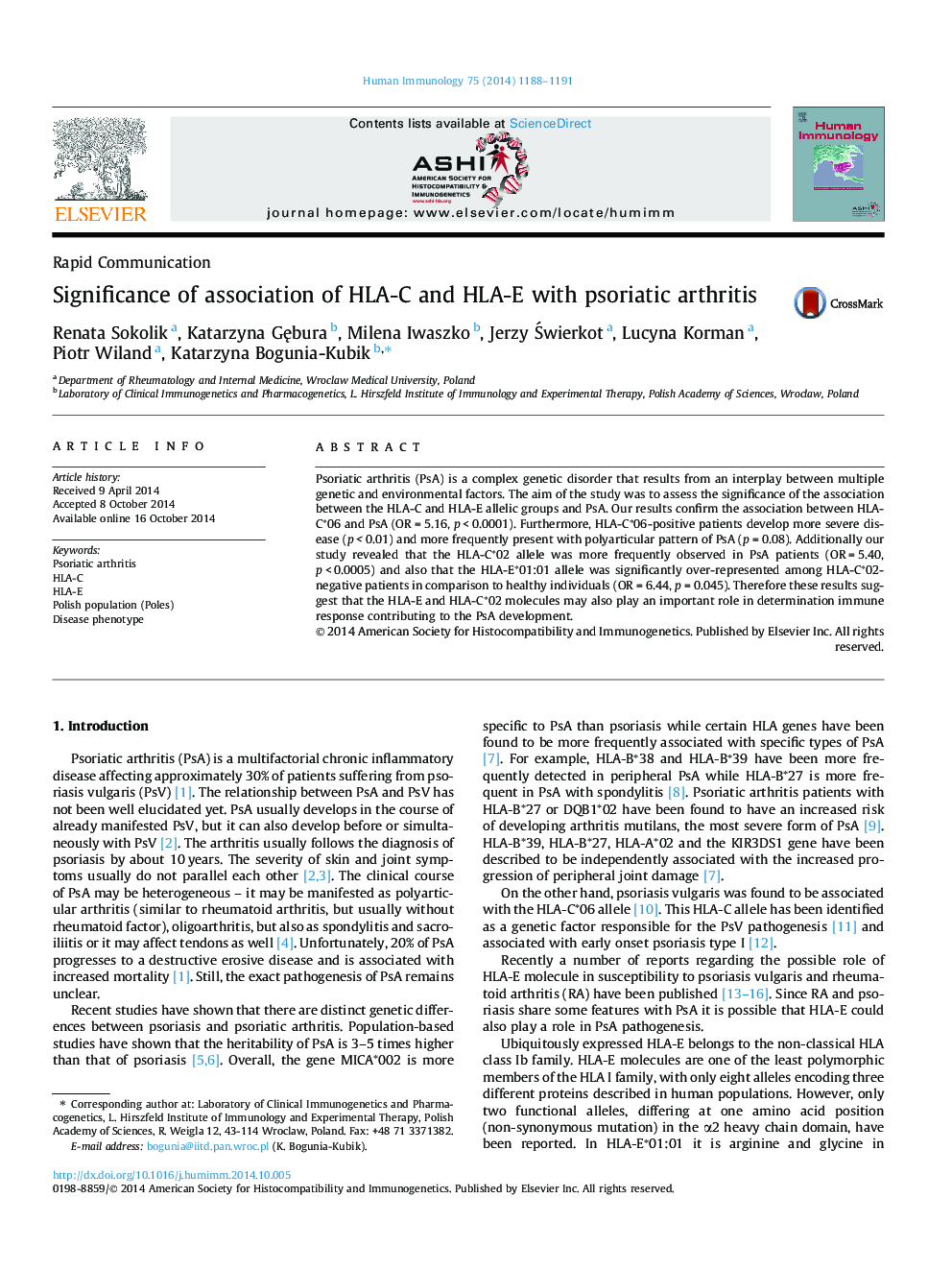| Article ID | Journal | Published Year | Pages | File Type |
|---|---|---|---|---|
| 6116703 | Human Immunology | 2014 | 4 Pages |
Abstract
Psoriatic arthritis (PsA) is a complex genetic disorder that results from an interplay between multiple genetic and environmental factors. The aim of the study was to assess the significance of the association between the HLA-C and HLA-E allelic groups and PsA. Our results confirm the association between HLA-Câ06 and PsA (OR = 5.16, p < 0.0001). Furthermore, HLA-Câ06-positive patients develop more severe disease (p < 0.01) and more frequently present with polyarticular pattern of PsA (p = 0.08). Additionally our study revealed that the HLA-Câ02 allele was more frequently observed in PsA patients (OR = 5.40, p < 0.0005) and also that the HLA-Eâ01:01 allele was significantly over-represented among HLA-Câ02-negative patients in comparison to healthy individuals (OR = 6.44, p = 0.045). Therefore these results suggest that the HLA-E and HLA-Câ02 molecules may also play an important role in determination immune response contributing to the PsA development.
Related Topics
Life Sciences
Immunology and Microbiology
Immunology
Authors
Renata Sokolik, Katarzyna GÄbura, Milena Iwaszko, Jerzy Åwierkot, Lucyna Korman, Piotr Wiland, Katarzyna Bogunia-Kubik,
